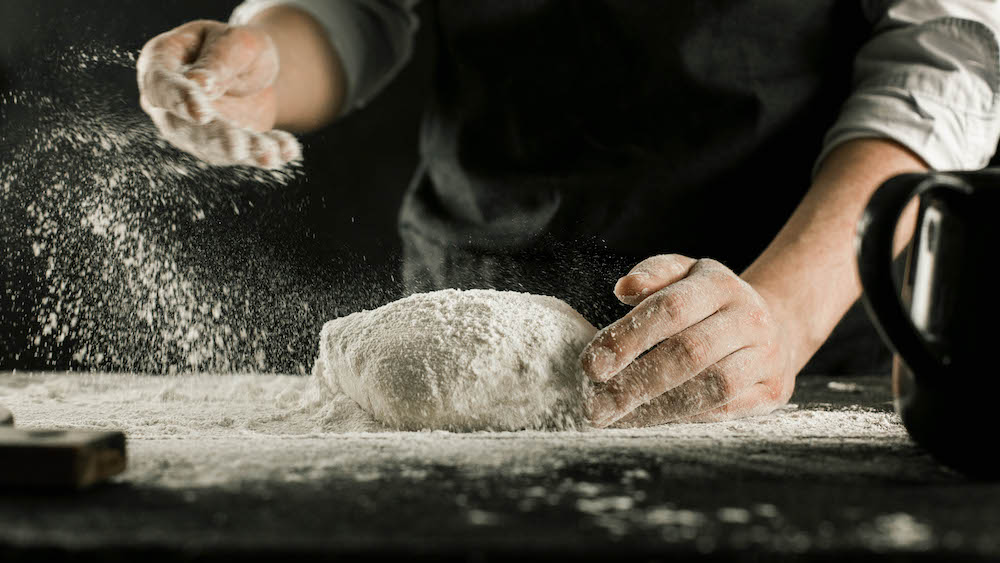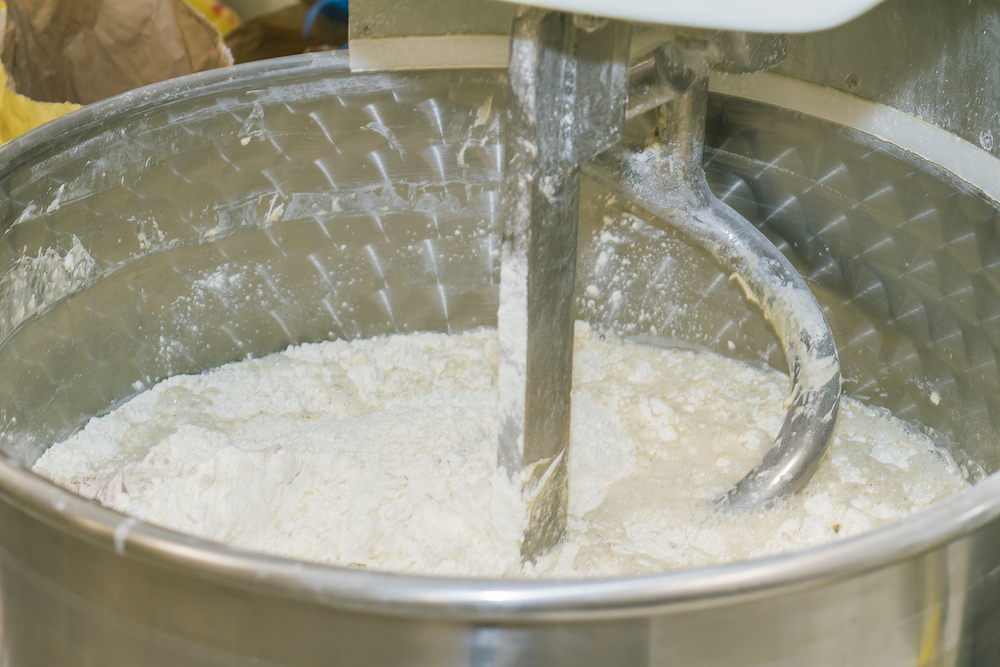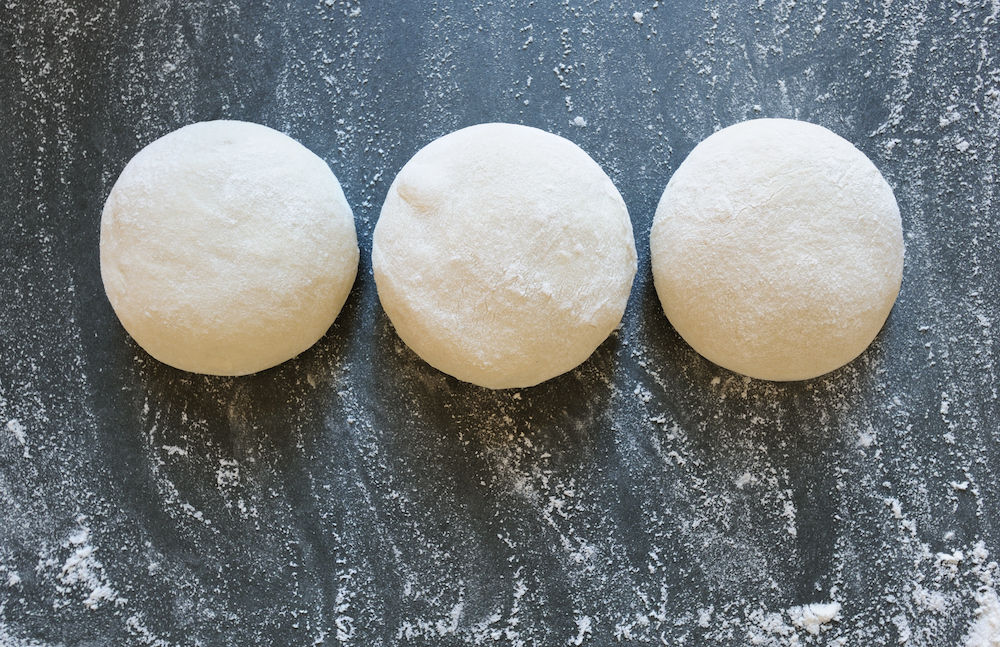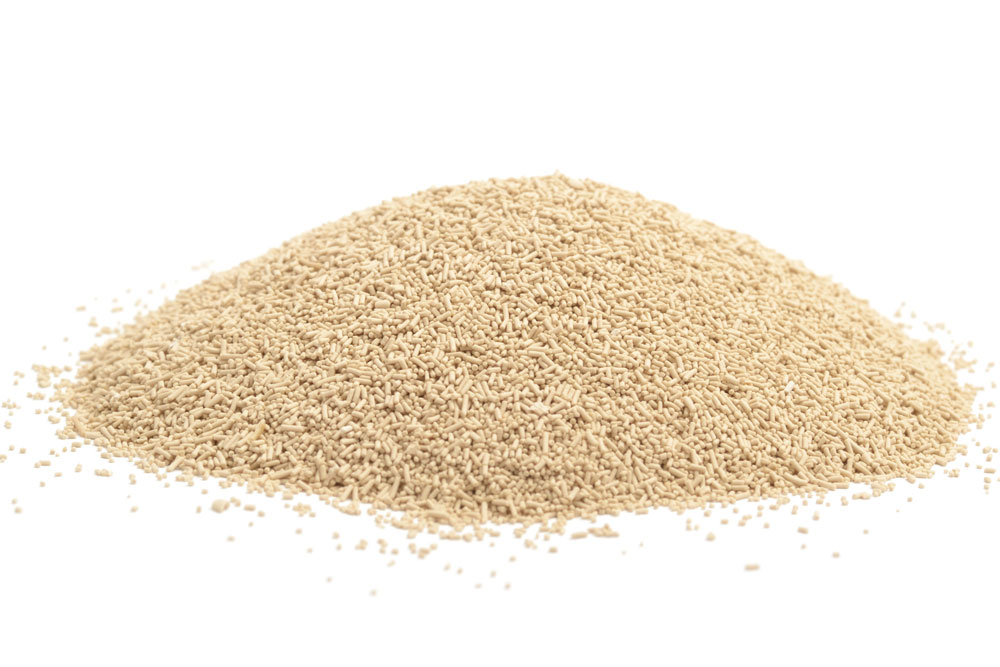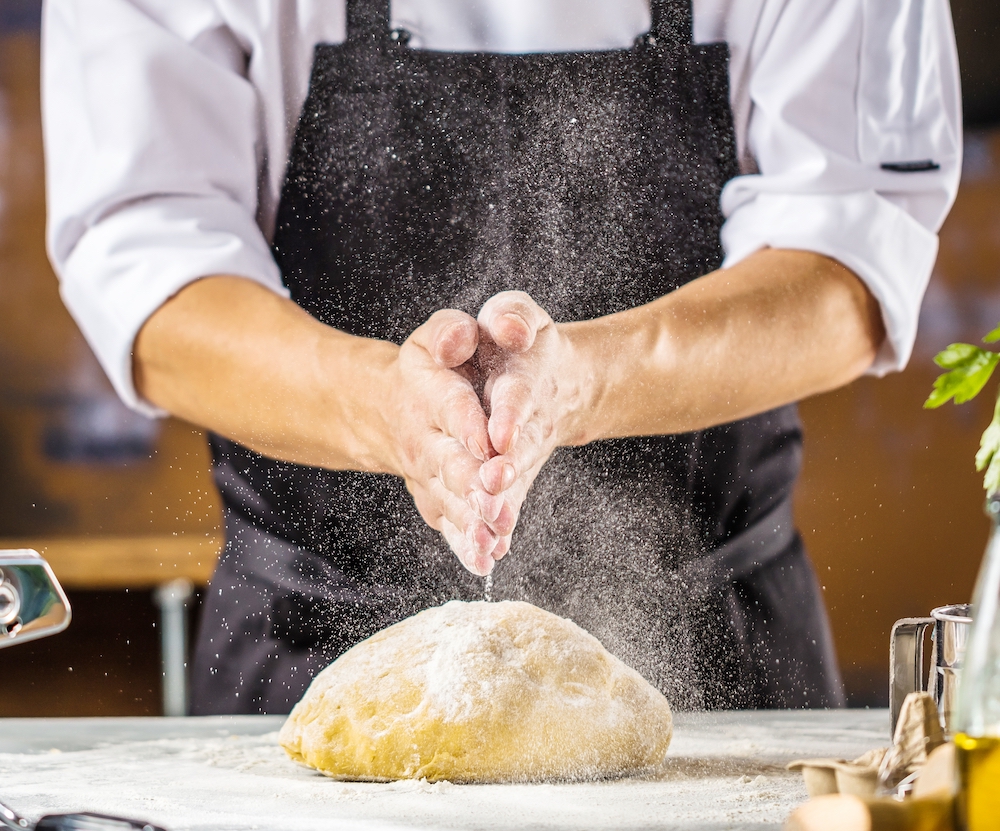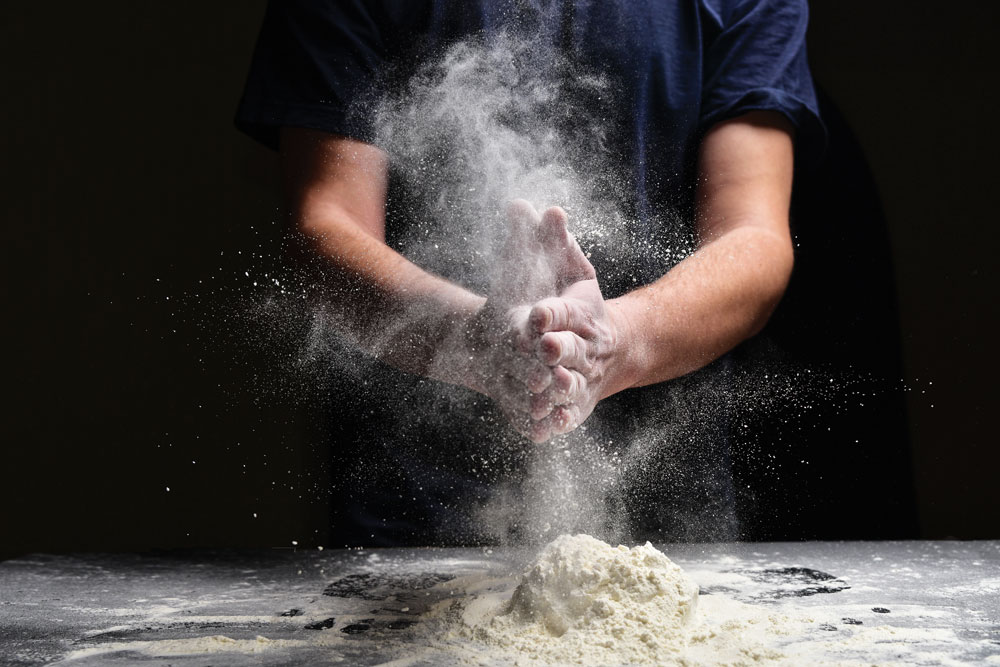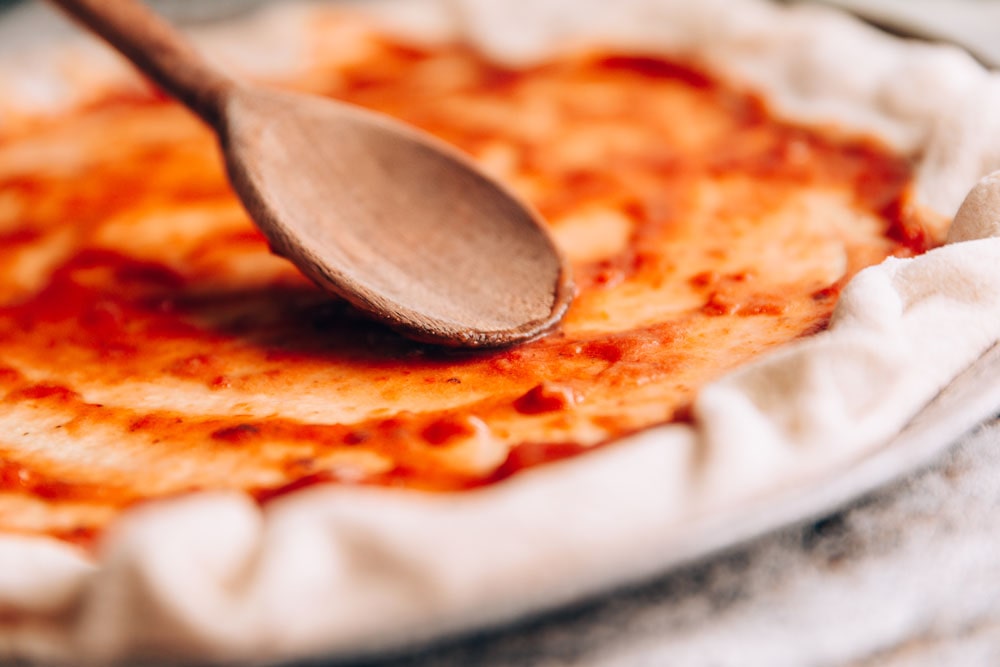Q: Can you explain the roles that salt, sugar and oil play in the overall final dough product?
A: Good question! Many people don’t realize that salt, sugar and oil do more than add flavor to pizza dough. Let’s consider these ingredients one at a time to determine how each affects your finished crust.
Salt improves dough’s handling properties by giving it a drier feel with reduced stickiness and better extensibility properties. Salt also controls the rate of fermentation so as to reduce the incidence of “blown” or over-fermented dough. And without salt, or with too little salt, the finished dough will lack overall flavor, characterized by a somewhat starchy taste. Too much salt, on the other hand, slows the rate of fermentation and creates a tightness that makes it harder to open the dough into a pizza skin.
Sugar comes in many different types. Some lend sweetness to the dough, while others mostly provide some crust color. Still others provide both sweetness and a unique flavor. Sucrose, in the form of granulated or table sugar, also provides nutrients for the yeast—this is especially important if you manage your dough over several days or more. Dextrose adds slightly less sweetness than sucrose but otherwise functions similarly. Lactose sugar (known as milk sugar), found in high quantities in dried dairy whey, has a low sweetness value but gives a darker finished crust color. (Like sucrose, honey and malt syrups also provide nutrients for yeast, increase crust color development, and provide a sweeter or unique taste.)
Finally, fats and oils provide tenderness, mouth feel and flavor to the finished crust. They also help enhance the volume of the dough and inhibit moisture penetration from the toppings during baking, thus helping to prevent gum line formation. Additionally, animal fats, such as lard, tallow and butter, lend unique flavor to the crust, as do vegetable fats, such as margarine or shortening. Vegetable oils (corn, canola, soybean and peanut) taste bland and impart little, if any, flavor to the finished crust. Olive oil, on the other hand, lends a pronounced and distinctive flavor to the finished crust.





